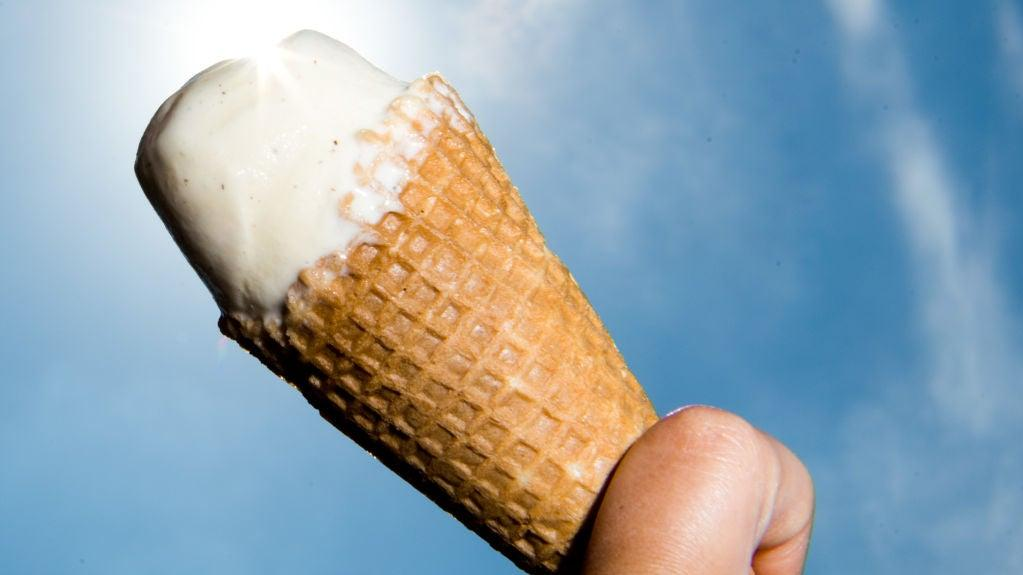E. Coli + Plastic Waste = Delicious Vanilla Ice Cream?
A new study found that E. coli can convert post-consumer plastic into vanillin.
It's safe to say we're in the midst of a plastic crisis, with approximately 50 million tons of polyethylene terephthalate (PET) waste produced annually thanks largely to food and drink packaging, Science Daily reports. (Let's also not forget the whole Great Pacific Garbage Patch thing.) But what if we could skip all that plastic pollution and turn post-consumer plastic into something tasty—like, say, vanilla ice cream?
In a new study cited in Science Daily, researchers have discovered that E. coli bacteria can be "deployed" (ominous!) as a sustainable way to convert post-consumer plastic into vanillin. Vanillin is the main component of extracted vanilla beans, and it's responsible for vanilla's signature taste and smell. This could be especially useful since there's been a worldwide vanilla shortage for the past few years.
Here's how it works: scientists used lab-engineered E. coli to transform terephthalic acid (a molecule derived from PET) into vanillin via a series of chemical reactions. Science Daily reports that the scientists successfully converted a plastic bottle into vanillin by adding the E. coli to the degraded bottle waste, claiming that the vanillin would be fit for human consumption after "further experimental tests."
If the transformation sounds revolutionary, that's because it is. Researcher Joanna Sadler called it "the first example of using a biological system to upcycle plastic waste into a valuable industrial chemical." Researcher Dr. Stephen Wallace added: "Our work challenges the perception of plastic being a problematic waste and instead demonstrates its use as a new carbon resource from which high value products can be obtained." Now, the researchers are working to lay the foundation for further studies, which will hopefully "maximize vanillin production towards industrially relevant levels." The only question: what are we gonna do with all this vanillin? Time to increase our personal chocolate chip cookie quotas, methinks. It's good for the Earth!
